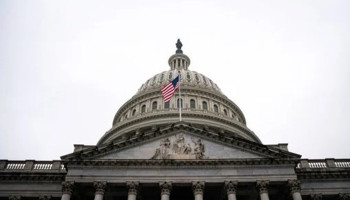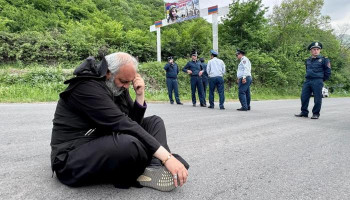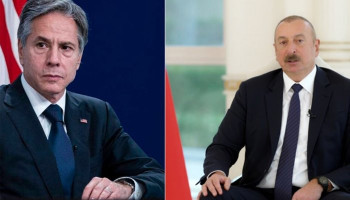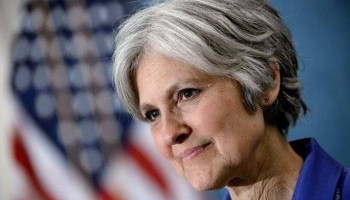Armenia shared documents, that allege Azerbaijan has been amassing vast quantities of military hardware bought from countries like Israel and Pakistan
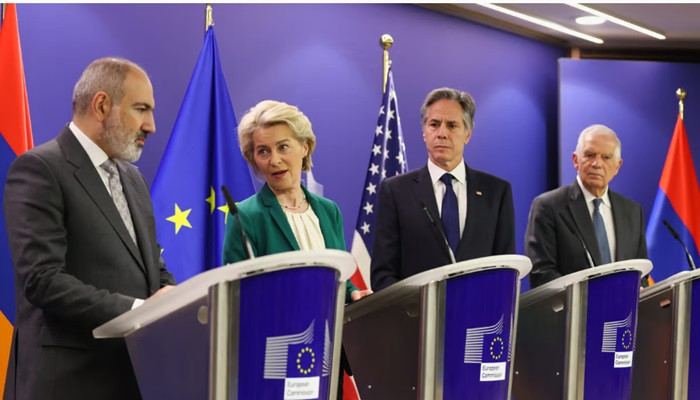 The European Union has agreed on a landmark plan to help pull Armenia out of Russia’s orbit and support its economy in the face of growing tensions in the region. It follows talks Friday in Brussels between European Commission President Ursula von der Leyen, U.S. Secretary of State Antony Blinken and Armenian Prime Minister Nikol Pashinyan. Speaking to journalists following the three-way summit, von der Leyen said the EU would allocate €270 million to support businesses and industry in the South Caucasus country over the next four years as part of “a new and ambitious partnership agenda.” “We will make investments to strengthen Armenia’s economy and society, making them more robust and stable in the face of shocks,” she added, with funds being allocated for electrification and new renewable energy projects. The move comes as Armenia works to cut ties with its former ally, Russia, which owns much of its energy network and infrastructure but has failed to step in amid a worsening confrontation with neighboring Azerbaijan. Armenia, having effectively suspended its membership of the Russian-led CSTO military alliance, has invited U.S. troops to train in the country, dispatched aid to Ukraine and even suggested it could try to join the EU itself. Von der Leyen praised “the measures that Armenia has taken against the circumvention of our sanctions against Russia … This shows that the European Union and Armenia are increasingly aligned in values and interests.” “We welcome Armenia’s efforts in the direction of democracy, fighting corruption and establishing the rule of law,” said the EU’s foreign policy chief, Josep Borrell, on the sidelines of Friday’s meeting. Von der Leyen also backed Armenia’s “Crossroads of Peace” proposals which would see the country become a transport and trade hub by opening up connections with neighbors like Turkey, as well as Azerbaijan, though it has so far rejected the plan put forward by Pashinyan. The Azerbaijani government in Baku has been pushing for a Russian-controlled road and rail link that would run through the south of Armenia, named the Zangezur Corridor. Azerbaijan, which is a major exporter of natural gas to the EU and has fought a series of wars with Armenia in recent years, had objected to the trilateral meeting taking place. Prior to the talks, von der Leyen spoke on the phone with Azerbaijani President Ilham Aliyev and sought to reassure him of Brussels’ continued cooperation on “renewable energy, transportation connections, energy security, and others.” Blinken, however, earlier this week issued a warning to Azerbaijan amid claims from Pashinyan that the country could launch another offensive against Armenia. Blinken told Aliyev in a call “that there is no justification for increased tension on the border and cautioned that aggressive actions and rhetoric from any side would undermine prospects for peace.” Ahead of the meeting, Armenia shared documents with EU and U.S. officials, seen by POLITICO, that allege Azerbaijan has been amassing vast quantities of military hardware bought from countries like Israel and Pakistan. Armenia alleges its neighbor has received an average of more than one arms delivery per day since the start of the year, with Azerbaijan in September launching a military operation to conquer the breakaway region of Nagorno-Karabakh, sparking a mass exodus of its 100,000 ethnic Armenian residents. |











